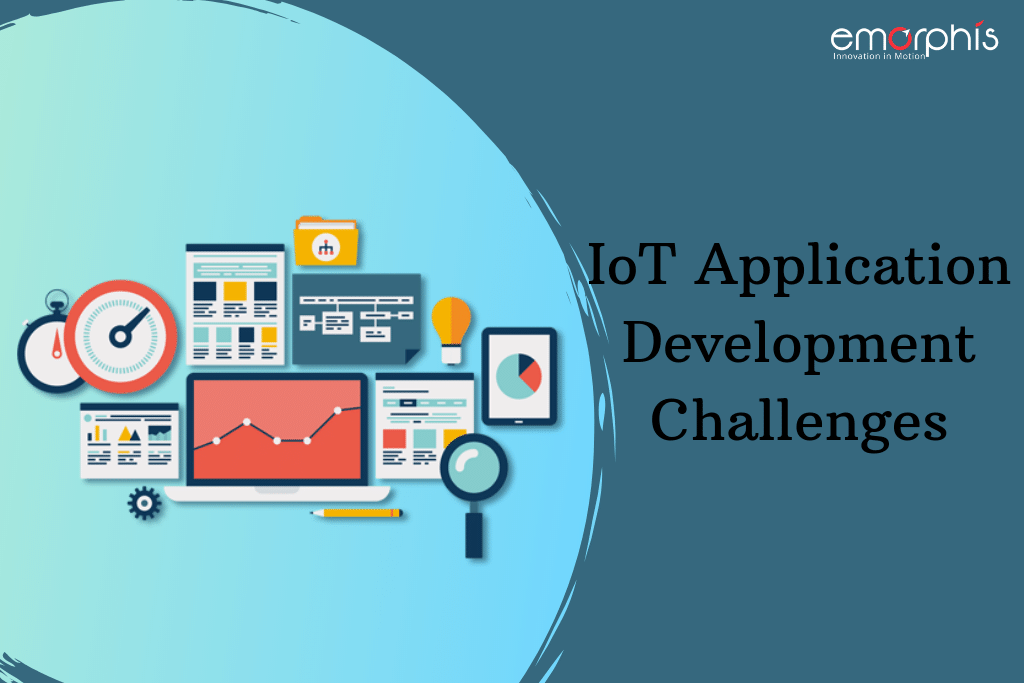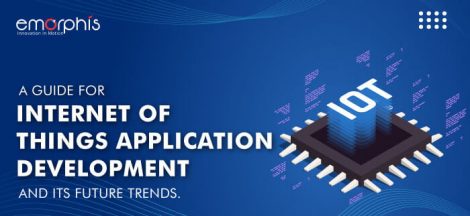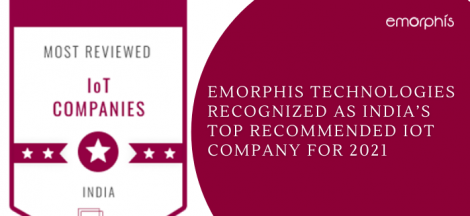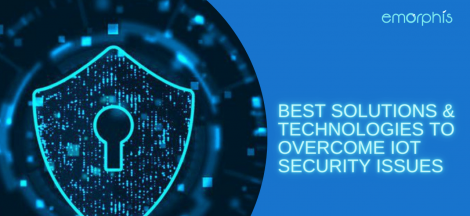IoT Application Development is continuously proving itself to be revolutionary and foundation for other modern-day technologies like AI. With connected everything- smart vehicles, smart devices, smart houses, smart appliances; connectedness is the biggest development of modern time. While IoT application development comes with a plethora of opportunities, implementing the concept of smart interaction and connected devices is complex.
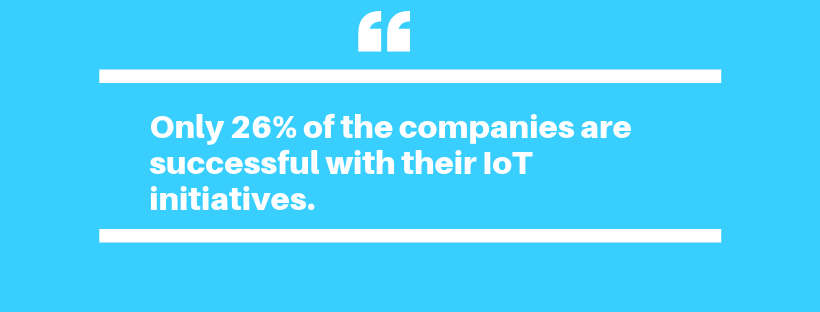
There have been many instances where big commercial establishments were unsuccessful in realizing the complications involved in IoT solution development. In fact, the Cisco survey of 2017 revealed that only 26% of the companies are successful with their IoT initiatives. Of all the reasons for IoT start-ups failure, improper integration of application and lack of expertise tops the list. Well, this did not come as disbelief for the companies as IoT development involves understanding and knowledge of embedded systems, analytics, hardware development, app development and many more. The companies realise that lack of proper skill set along with other challenges had hindered IoT application development.
Here we are discussing in brief about the challenges in IoT app development:
Security & Privacy
One of the most controversial issues yet very significant challenges of IoT APP development is privacy & security. Before we move ahead, the security we are talking here is not only the network security but the security of all the components involved in IoT applications. These applications are backed by a network that connects the hardware and software components and involves a huge amount of data traveling through a number of connected devices interfering with the personal spaces of users. With such humungous data online, it is vulnerable to cyber-attacks and hacking. Remember the 2016 Dyn Cyber-attack- a DDoS attack that caused a slowdown or shut down of major online portals. This always serves as a reminder of security as a challenge while developing IoT applications.
Along with the IoT software development security as a challenge, there are some more key encounters that should be considered while developing an IoT app:
- Data Exchange Security: This is important to understand that the data transfer from IoT sensors & devices to a platform or gateway and then stored at the cloud. It is essential to ensure data encryption protocol is followed while app development.
- Physical Security: The IoT devices are usually unattended and hence can be easily tampered by the hackers. Thus, checking whether the security component is added to an IoT device is always a challenge.
- Cloud Storage Security: Though cloud storage is considered secured it is a challenge for developers to ensure that the IoT platform is properly encrypted, is capable of protecting data and appropriate access & authorization is taken care of.
- Privacy Updates: Data fetched by IoT devices are always under certain rules & regulations. For example, All the fitness trackers collect user information based on HIPAA guidelines. This means that the information stored on the cloud through the IoT device is compliant to specified regulations. Complying to regulations like HIPAA ensures the privacy of data.
Connectivity
The essence of the Internet of Things application development is the real-time transmission of data. But this becomes a challenge because of poor connectivity or latency. Connected devices that provide useful front-end information is extremely valuable. But poor connectivity becomes a challenge where IoT sensors are required to monitor, process data and supply information. The best example of IoT application suffering due to connectivity is huge manufacturing companies that utilize IoT sensors connected to data platforms cannot perform due to server breakdown.
In fact, connectivity is the foremost concern while connecting devices, applications and cloud platforms. This challenge can be addressed in the design & device application environment. For example- a basic printing machine can be connected with laptops, PCs, mobile devices through WiFi home router but the same is not the case for smart vehicles as they require mobile connected internet. Therefore, developers need to understand the device functions & features and make development decisions accordingly. For IoT devices and platforms to perform well, development teams must ensure that the applications are in good connectivity.
Cross-Platform Compatibility (Hardware & Devices)
IoT applications must be developed keeping in mind the technological changes of the future. Thus, IoT development requires a balance of hardware and software functions. Development teams may concentrate on designing the device that can achieve the finest performance but it might confine updating the product. Also, at the same time, the device allows using new functions, features, help in bug fixing as it has a heavy operating system but may cause a reduction in performance. Hence, it is a challenge for IoT application developers to ensure that device and IoT platform delivers the best performance despite heavy OS, device updates and bug fixings. Many vendors supply with SDKs and APIs for developers to add new functionalities to their already developed application. IoT applications run on the web as well as mobile devices and hence need to be compatible.
As most of the IoT applications are integrated into the legacy systems, it is no less than a challenge for developers to make the system compliant to industry standards and protocols. While developing the IoT application, developers must ensure that the application can be seamlessly integrated without increasing difficulties in the IoT ecosystem (considering both hardware and software).
Data Collection & Processing
Since IoT application involves a huge amount of data, data collection & processing the same is a challenge for developers. Along with privacy and security planning, development teams need to ensure that they plan well for the way data is collected, stored or processed within an environment. Also, it is significant to make sure data size that is to be stored on the cloud and comply with platform requirements. To make this certain, IoT application development teams should employ data experts, analytic engineers and machine learning resources to get insights from data stored on the cloud.
In IoT development, data play an important role but what is more crucial here is the processing or usefulness of stored data.
Lack of Skill Set
All of the development challenges above can only be handled if there is a proper skilled resource working on the IoT application development. IoT is a diverse field and thus count on resources that are well aware of software and hardware implementations. A right talent will always get you past the major challenges and will be an important IoT application development asset.
Concluding View
While these are some of the major challenges that appear while IoT application development, it is imperative for development companies to adapt and adopt technological advancements to drive IoT developments. Having said this, it is essential for a developer to be aware of the challenges and get ready to work on them to successfully establish themselves in the market.



